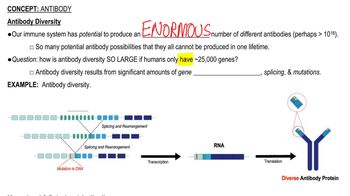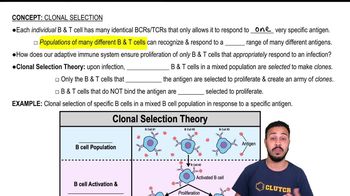Helicobacter pylori uses the enzyme urease to counteract a chemical defense in the human organ in which it lives. This chemical defense is
a. lysozyme.
b. hydrochloric acid.
c. superoxide radicals.
d. sebum.
e. complement.
 Tortora 14th Edition
Tortora 14th Edition Ch. 16 - Innate Immunity: Nonspecific Defenses of the Host
Ch. 16 - Innate Immunity: Nonspecific Defenses of the Host Problem 17.9a
Problem 17.9a Verified step by step guidance
Verified step by step guidance



Helicobacter pylori uses the enzyme urease to counteract a chemical defense in the human organ in which it lives. This chemical defense is
a. lysozyme.
b. hydrochloric acid.
c. superoxide radicals.
d. sebum.
e. complement.
Are the following involved in innate or in adaptive immunity? Identify the role of each in immunity:
a. TLRs
b. transferrins
c. antimicrobial peptides
Which of the following statements about IFN- is false?
a. It interferes with viral replication.
b. It is host-cell–specific.
c. It is released by fibroblasts.
d. It is virus-specific.
e. It is released by lymphocytes.
Classify the following vaccines by type. Which could cause the disease it is supposed to prevent?
a. attenuated measles virus
b. dead Rickettsia prowazekii
c. Vibrio cholerae toxoid
d. hepatitis B antigen produced in yeast cells
e. purified polysaccharides from Streptococcus pyogenes
f. H. influenzae polysaccharide bound to diphtheria toxoid
g. a plasmid containing genes for influenza A protein
In the laboratory, blood is typed by looking for hemagglutination. For example, anti-A antibodies and type A RBCs clump. In a type A person, anti-A antibodies will cause hemolysis. Why?